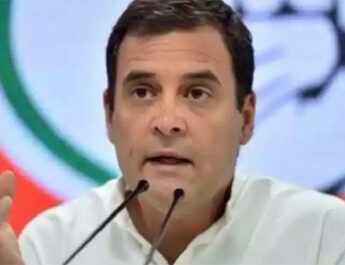BFrom Our Bureau
NEW DELHI: Jamiat Ulama-i-Hind has moved the Supreme Court,seeking dismissal of petitions challenging the validity of the Places of Worship (Special Provisions) Act, 1991, saying it will open floodgates of litigations against countless mosques across India.
“There is a list of numerous mosques which is doing the rounds on social media, alleging that the mosques were built allegedly by destroying Hindu temples. Needless to say that if the present petition is entertained, it will open floodgates of litigation against countless mosques in the country and the religious divide from which the country is recovering in the aftermath of the Ayodhya dispute will only be widened,” the Muslim body said.
In an intervention application filed in the top court, it said even if all the allegations of petitioner Ashwini Kumar Upadhyay, a Delhi BJP leader and lawyer, were assumed to be true, it’s nothing but seeking a correction of historical wrongs.
Upadhyay has raised grounds which have already been considered and decided by a Constitution Bench of the Supreme Court, it submitted.
“This court has categorically held that the law cannot be used as a device to reach back in time and provide a legal remedy to every person who disagrees with the course which history has taken and that the courts of today cannot take cognizance of historical rights and wrongs unless it is shown that their legal consequences are enforceable in the present,” Jamiat Ulama-i-Hind said.
“In fact, this court categorically held that this court cannot entertain claims from actions of the Mughal rulers against Hindu Places of Worship in a court of law today,” it contended.
The top court had in March 2021 asked the Centre to respond to Upadhyay’s petition challenging the validity of certain provisions of the 1991 Act, which prohibited filing of a lawsuit to reclaim a place of worship or seek a change in its character from what prevailed on August 15, 1947.
The petition alleges that the 1991 law creates an “arbitrary and irrational retrospective cut-off date” of August 15, 1947 for maintaining the character of the places of worship or pilgrimage against encroachment done by “fundamentalist-barbaric invaders and law-breakers”.
Upadhyay had sought to assail Sections 2, 3, 4 of the Places of Worship (Special Provisions) Act, 1991 on various grounds, including the fact that these provisions took away the right of a judicial remedy to reclaim a place of worship of any person or a religious group. The 1991 Act made only one exception i.e. the Ram Janmabhoomi-Babri masjid at Ayodhya.
However, Jamiat Ulama-i-Hind said there was no conflict between the Wakf Act and the Places of the Worship (Special Provisions) Act, 1991 as alleged by Upadhyay as Section 7 of the 1991 Act gives it an overriding effect over other enactments. “Further, in any event, the Places of Worship (Special Provisions) Act,1991 being a special vehicle act to preserve the secular fabric of the country will in any event take precedence over a general enactment.”




